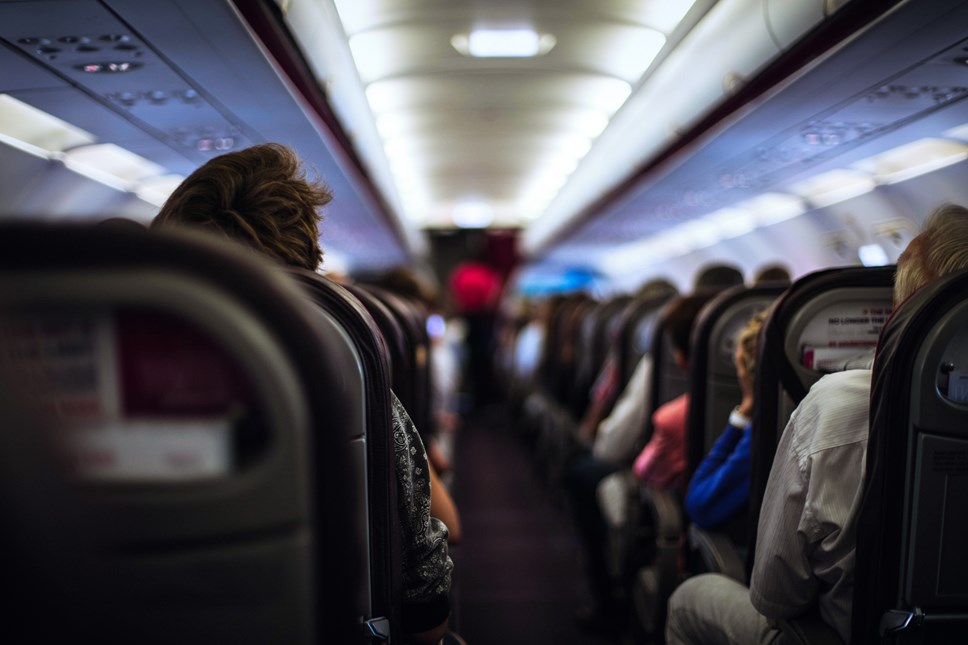
Drone-t get caught out – know your rights if your flight is delayed
With drones causing travel chaos for tens of thousands of travellers at London’s Gatwick Airport, Matthew Sanders from GoCompare Travel Insurance has issued this guidance to anyone affected who is wondering if they are entitled to compensation, or how their travel insurance might help.
Where should I go for compensation?
Your first port of call in seeking compensation to cover expenses caused by delays and disruption should be your travel operator or accommodation provider. In the case of the drones at Gatwick – your airline.
The cost incurred by flight delays is covered by a European ruling, making airlines bound to compensate you for delayed flights. But such claims can be turned down if ‘extraordinary circumstances’ apply, including sabotage. Which, these drones could be seen as. However, airlines have a responsibility to look after their customers, so even if no compensation is forthcoming they should help you with temporary accommodation (and transport to and from there), plus food and drinks.
Beyond that, though, the right travel insurance policy could reimburse you for additional expenses, and/or for elements of your holiday that are lost because of delays.
This usually works on a sliding scale, so the longer your delay goes on, the more compensation you're likely to receive.
Bear in mind that you may well have to pay for essentials such as food, phone bills, travel and accommodation up front before claiming it back from your insurer (and if you aren’t supported with this by your airline). .
For that reason, if at all possible it's always good to have emergency funds available, perhaps in the form of a credit card.
Keep your receipts, and be aware of any limits your policy places on how much you can claim.
In what circumstances can I claim?
All policies will differ, but if you're delayed for reasons outside of tour control, travel insurance may reimburse you to an amount agreed under the policy.
If things like airspace, or an airport are closed for extended periods or if public transport fails, you may be eligible to make a claim.
Insurance for delayed departure
GoCompare’s analysis of 1,073 single trip travel insurance policies found that 84% of providers offer cover within the first 12 hours of a delayed departure with pay-outs ranging from £7.50 to £300.
The majority of policies (63%) provide cover of between £10 and £35 for each insured person.
Further pay-outs are likely to be available for further delays of 12 hours or more, payments range between £7.50 to £300 depending on the policy, with a typical benefit in the £10 to £35 range.
Policies cap the total amount paid-out for delays, in our study the maximum benefit ranged from £50 to £1,500 – but policies typically provide cover in the £150 to £350 range.
It's important to remember that you can't insure against potential disruption to your holiday plans that you were already aware of.
Insurance for abandonment
In our study, 90% of policies offered some cover for abandoning a holiday following an extended delay (typically 12-to-24 hours).
To be eligible to claim, policyholders were required to have checked in by the recommended time and to provide an official written statement confirming the reason for the delay and its duration.
They may also be required to submit unused travel tickets and vouchers.
Cover levels varied from £250 to £12,500, with some including compensation for pre-paid excursions, tours and activities. Most policies provide cover in the £3,000 to £5,000 range.
Note that a claim for travel abandonment will generally mean that a policyholder is not able to claim for delayed departure.
-ends-
For further information please contact:
Anders Nilsson or Louisa Marsden at GoCompare on 01633 654 054 / 01633 655 132
Gordon, Jason or Liz at MAW Communications on 01603 505 845
Keep up-to-date with GoCompare on Twitter; @GoCompare
Notes to editors
About GoCompare
GoCompare is a comparison website that enables people to compare the costs and features of a wide variety of insurance policies, financial products and energy tariffs.
GoCompare does not charge people to use its services, and it does not accept advertising or sponsored listings, so all product comparisons are unbiased. GoCompare makes its money through fees paid by the providers of products that appear on its various comparison services when a customer buys through the site.
GoCompare does not sell its customers’ data.
When it launched in 2006, it was the first comparison site to focus on displaying policy details rather than just listing prices, with the aim of helping people to make better-informed decisions when buying their insurance. GoCompare has remained dedicated to helping people choose the most appropriate products rather than just the cheapest, and has teamed up with Defaqto, the independent financial researcher, to integrate additional policy information into a number of its insurance comparison services. This allows people to compare up to an extra 30 features of cover.
GoCompare is the only comparison website to be invited to join the British Insurance Brokers’ Association (BIBA) and is authorised and regulated by the Financial Conduct Authority (FCA).
For more information visit www.gocompare.com and www.gocomparegroup.com
